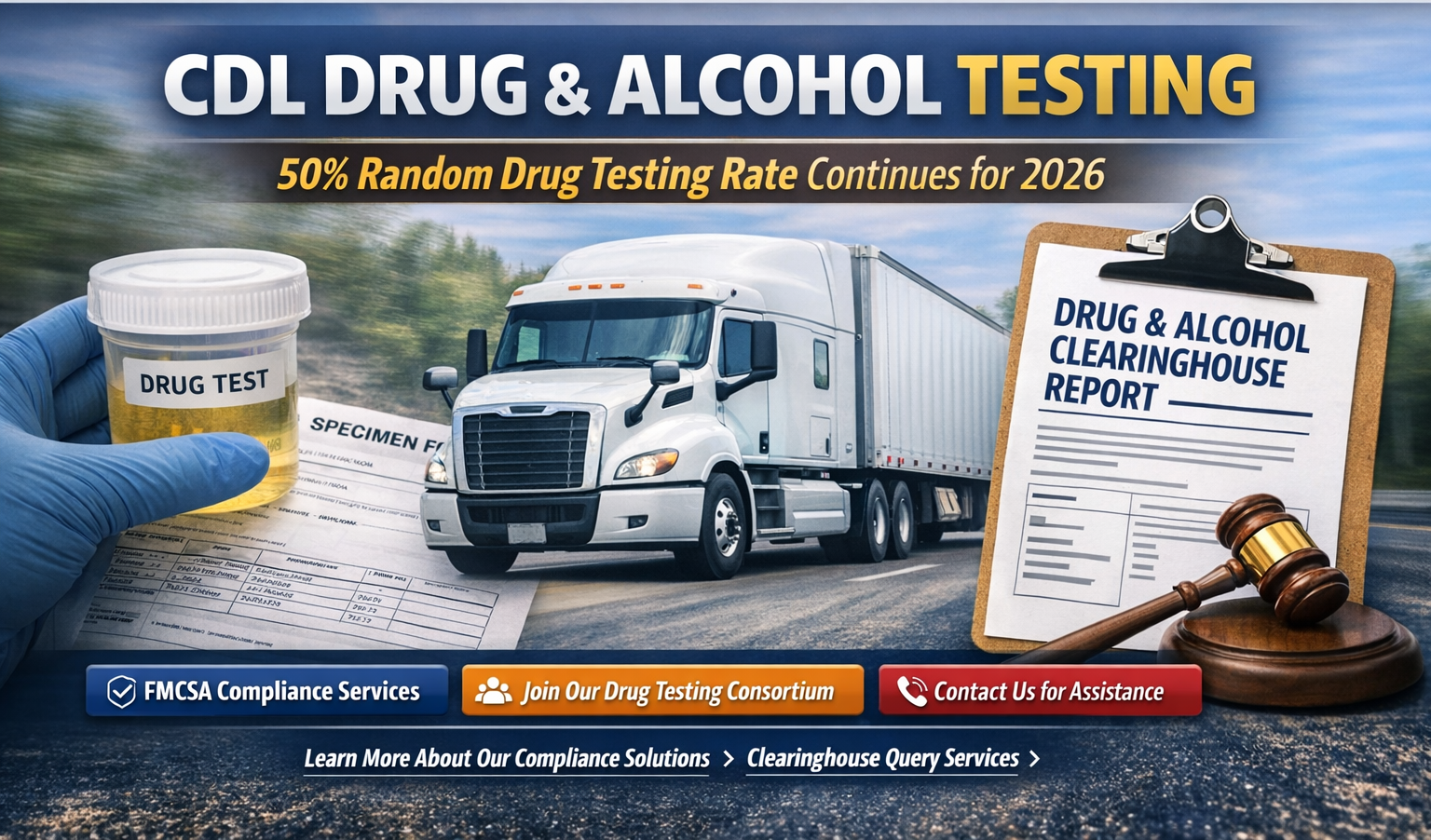2025 Fleet Compliance Trends
July 29, 2025
Share this article:
Tighter DOT Compliance and Audit Standards
In 2025, federal oversight of commercial fleets is expected to become more rigorous. The Federal Motor Carrier Safety Administration (FMCSA) is placing greater emphasis on enforcing safety regulations and expanding its use of data-driven audits. Carriers that previously operated with minimal scrutiny may now face detailed compliance reviews.
Fleet operators should prepare for an increase in off-site audits, where compliance documentation is reviewed remotely. This change puts more responsibility on companies to maintain organized, real-time records. Key focus areas include Hours of Service (HOS), Drug and Alcohol Clearinghouse queries, and Driver Qualification (DQ) files.
National Fleet Services works closely with clients to maintain complete and accurate documentation. Our team supports every step of the audit process, helping you avoid costly violations and minimize operational disruptions.
Increased Adoption of Digital Recordkeeping
Paper-based systems are becoming increasingly difficult to manage as compliance requirements grow. In 2025, more fleets are adopting digital recordkeeping tools to keep up with regulatory demands. These tools simplify data entry, improve accuracy, and make documentation easier to access during inspections or audits.
Digital platforms allow fleets to track and update critical compliance areas such as Driver Qualification files, Electronic Logging Device (ELD) reports, and drug and alcohol program records. These systems can also generate alerts for expiring credentials and missing documents, helping managers take corrective action quickly.
Companies that shift to electronic compliance systems benefit from faster reporting, fewer manual errors, and a more organized approach to managing regulatory obligations. In a climate of increasing oversight, digital recordkeeping provides both operational efficiency and peace of mind.
Evolving State Tax Regulations for Fleets
State-level tax rules are changing in response to shifting economic pressures and increased focus on transportation revenue. In 2025, fleets operating across state lines will need to pay closer attention to variations in International Fuel Tax Agreement (IFTA) and International Registration Plan (IRP) requirements.
Many states are tightening enforcement, increasing penalties for late or inaccurate filings, and using automated systems to identify discrepancies. Changes in fuel tax rates, filing deadlines, and mileage reporting standards can create compliance challenges for even the most experienced fleet managers.
Staying up to date with these evolving rules requires careful monitoring of each jurisdiction where your vehicles operate. Fleets that overlook minor tax compliance issues may face audits, fines, or delays in license renewals. A proactive approach to managing IFTA
Heightened Focus on Driver Qualification and Training
Regulatory agencies are placing more emphasis on the qualifications and ongoing training of commercial drivers. In 2025, fleets can expect greater scrutiny of Driver Qualification (DQ) files, especially during audits or roadside inspections. Incomplete or outdated records can lead to violations and signal deeper compliance issues.
In addition to verifying credentials, employers are being encouraged to invest in driver training programs that address both safety and regulatory compliance. Topics like Hours of Service, vehicle inspection procedures, and drug and alcohol awareness are becoming essential components of ongoing education.
Keeping thorough DQ files and maintaining a regular training schedule helps protect fleets from fines and supports a culture of safety. A well-documented and proactive approach to driver management is increasingly seen as a core element of fleet compliance.
Renewed Scrutiny on IFTA and IRP Reporting
In 2025, IFTA and IRP reporting will continue to draw close attention from regulatory authorities. With more data analytics tools at their disposal, state and federal agencies are better equipped to detect inconsistencies in fuel use, mileage reporting, and registration compliance. As a result, fleets are experiencing more frequent audits and assessments related to these filings.
Common issues include underreported miles, inaccurate jurisdictional data, and missed renewal deadlines. These errors often stem from poor data collection or outdated tracking systems, which can trigger costly penalties and audit exposure.
Fleets that manage multi-state operations must implement accurate and consistent methods for tracking fuel purchases and mileage. Integrated systems that automate reporting can help reduce risk and improve accuracy across IFTA and IRP submissions. As regulatory oversight increases, these practices are becoming necessary for maintaining uninterrupted operations.
Integration of Compliance with Fleet Management Tech
Fleet compliance is no longer a standalone task. In 2025, more companies are integrating compliance tracking directly into their fleet management technology. This shift allows operations teams to monitor regulatory data in real time alongside vehicle performance, maintenance, and routing.
Combining compliance functions with fleet management tools helps identify risks earlier, reduce administrative workload, and centralize critical records. For example, systems that track driver hours, vehicle inspections, and licensing statuses can flag issues before they lead to violations.
This level of integration also supports faster decision-making. Fleet managers can act on compliance alerts as part of their daily workflow rather than relying on separate, disconnected systems. As regulatory pressure increases, integrated solutions are becoming an industry standard for maintaining both safety and efficiency.
Stay Compliant with Confidence
As compliance regulations evolve in 2025, fleet operators need more than reactive fixes. Staying ahead of new rules, tax changes, and audit expectations requires a proactive, informed approach. From maintaining clean Driver Qualification files to navigating IFTA and IRP reporting, every detail matters when it comes to reducing risk and protecting your operation.
Partnering with a trusted compliance expert can simplify this complexity. National Fleet Services provides the hands-on support and smart technology fleets need to stay compliant in a fast-changing environment. With our help, businesses can operate with greater clarity, fewer disruptions, and confidence that their compliance program is audit-ready.
Let’s take the guesswork out of fleet compliance. Request a demo or contact us to learn how we can support your success in 2025 and beyond.
fleet insights






